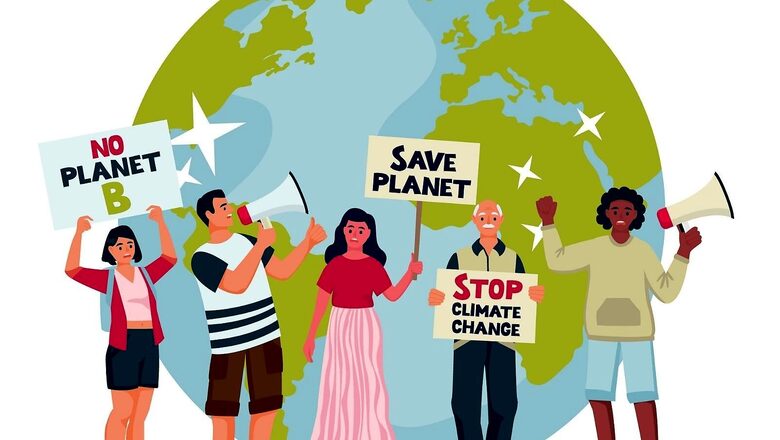
views
In June 2012, Rio de Janeiro (Brazil) hosted the third international conference on sustainable development, named the United Nations Conference on Sustainable Development (UNCSD) or just Rio 2012, Rio+20. Aimed at harmonising the global community’s economic and environmental interests, the conference had three goals: to obtain new political commitment for sustainable development, to evaluate how well earlier promises were being implemented and identify implementation gaps, and to discuss new and emerging concerns.
Ten years down the road, we have made progress in some specific areas, however, there are still complex challenges in front. The world needs to keep evolving its framework for sustainable development and work towards the unfinished agenda.
Successes and Failures of Rio+20
Highlighting the expanding gap between what nations need to do, what they have promised to do, and what they are actually doing was one of the most crucial issues that the Rio+20 conference successfully addressed. Previously, a number of participating nations had vowed to a sustainable future by signing climate change treaties. The majority of prior pledges to reduce carbon emissions, nevertheless, weren’t fully kept. Rio+20 provided a forum to address the problem. The conference’s ability to draw in a wide range of member nations was another impressive accomplishment. In addition, it included topics including young unemployment, the establishment of respectable jobs, problems with women’s health and sexuality, and the functions of labour unions.
The conference, however, was viewed as a failure by many due to the absence of numerous significant developed nations. The absence of many G20 leaders from the summit, including then US President Barack Obama, German Chancellor Angela Merkel, and UK Prime Minister David Cameron, highlighted the ongoing tensions between developed and developing countries. It also demonstrated the absence of global agreement and collaboration for a sustainable future. More crucially, in the document ‘The Future We Want’ there are no specific, measurable activities and all country commitments are voluntary. Due to all of this, the conference agenda was criticised for being weak and even more difficult to complete without prepared specifics.
Failing to Meet Needs of Poorest
The effects of climate change continue to be most severe in developing nations. Lack of financial support for developing nations’ transition to a sustainable and environmentally friendly future demonstrates a lack of commitment on a global scale. There are risks of food security for all, disappearing low-lying islands due to rising sea levels, millions of people abandoning their homes due to changing weather patterns, land degradation and loss of livelihoods. Climate change has been worsening the way of life in the Global South and the people residing here are the least to blame. For them, issues with food and water are challenges to their everyday survival rather than environmental problems.
Get Over the Political Charade
Often environmental and climate change treaties are called upon for being political shams, trying to design a charade to create an illusion of progress towards a sustainable future. Countries have taken part in numerous summits and conferences over the past 40 years and have agreed to ratify numerous regional and international treaties, but the majority of them have failed to accomplish their goals owing to a lack of concerted political action and commitment.
Previously in the Kyoto protocol, several developed nations such as the USA, Canada, Japan and Russia walked out of the agreement, stating that the agreement only binds developed countries. Canada, which was believed to be committed to reducing its emissions, was later discovered in 2009 to have emissions that were 17% greater than they had been previously. These kinds of incidents demonstrate how, while people most at risk continue to endure the effects of climate change, individuals in rich countries downplay their mistakes and exaggerate their contributions in an obscene charade.
Corruption-Free Future for Climate Change
Corruption and climate change have a relationship. Combating the former can help in dealing with the other. Development projects, carbon markets are very vulnerable to corruption and can easily lose transparency. Without transparency where public spending is done, there is a huge risk of losing public trust. The fact that India is now ranked 85th on the 2021 corruption perception index illustrates how vulnerable our initiatives to address climate change are to corruption on many different levels. It is critical to have accountable institutions and participatory government because we intend to invest billions of dollars combating climate change over the next 10 years.
Acting now makes sense in both economic as well as environmental terms. More greenhouse gas emissions in the atmosphere only means that economies will ultimately have slower growth. For the developed world, sustainable living might just be a way of life to protect the environment. However, for the developing world, sustainable development is an opportunity for social and economic mobility.
Despite the fact that Rio+20 fell short of many of its objectives, it served as a springboard for discussions on both economic and environmental growth. What remains to be seen is a political will from all countries to contribute towards a sustainable future.
Dr Harshit Kukreja is Research Analyst, and Mahek Nankani is Assistant Programme Manager at Takshashila Institution. The views expressed in this article are those of the authors and do not represent the stand of this publication.
Read all the Latest News , Breaking News , watch Top Videos and Live TV here.


















Comments
0 comment